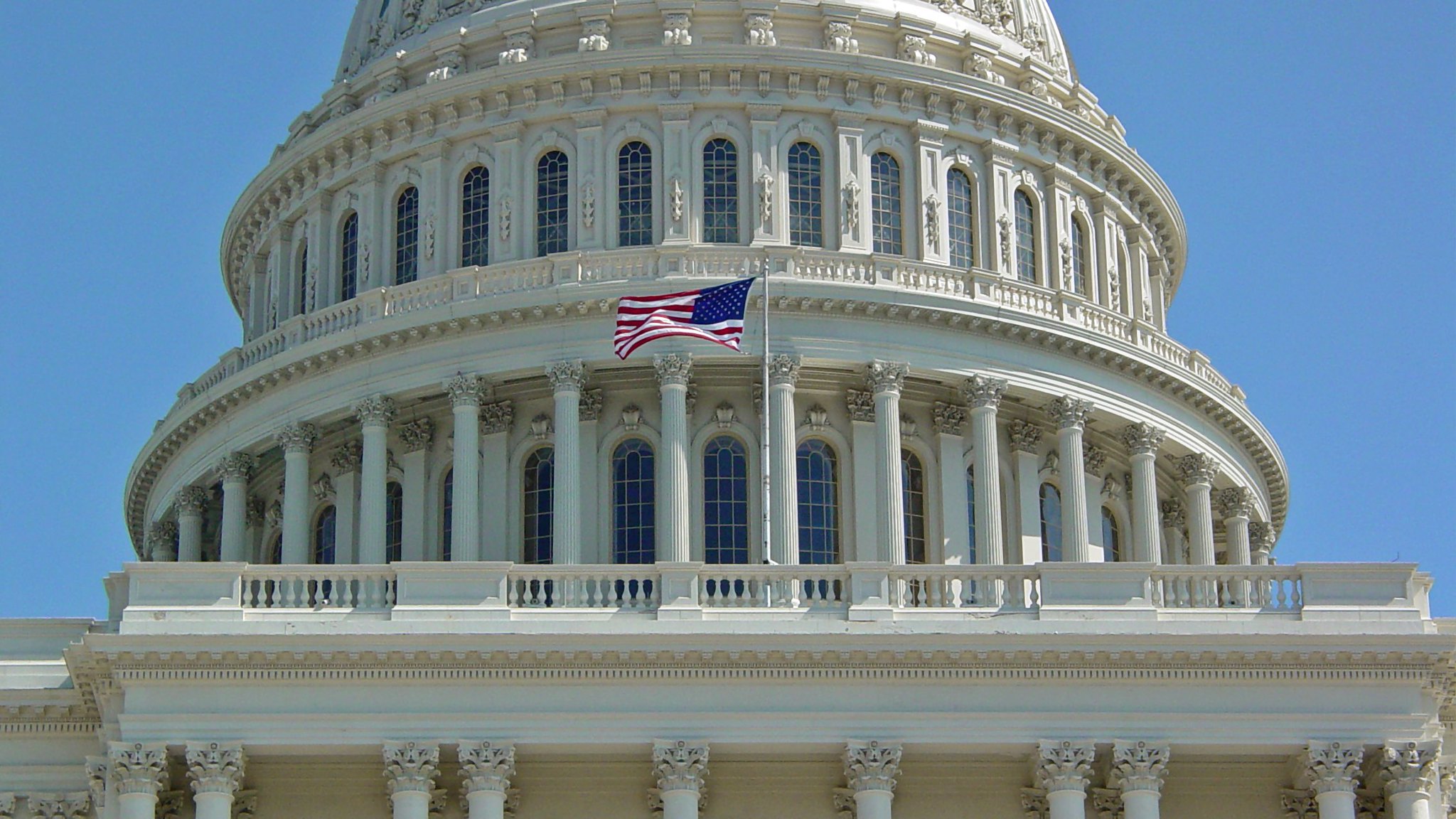The Consequences of Recent Court Decisions for Congress
What do recent court decisions mean for the future of congressional oversight?

Published by The Lawfare Institute
in Cooperation With

It’s been a blockbuster year for court decisions related to Congress’s oversight of the executive branch. But has anything really changed? Will the next Congress’s pursuit of oversight of the executive branch be substantially different from this one’s?
The answer to this question turns in part on the outcome of the November elections. Four more years of the Trump administration stonewalling House Democrats’ efforts at oversight is a much different proposition than a President Biden working with a Democratic-controlled House and Senate. Given another four years, and with a new electoral mandate, Trump is likely to continue to press the outer bounds of interbranch political norms. President Biden, by contrast, may have a desire to restore such norms, though he may end up supporting the demolition of a big one—the Senate filibuster rule for legislation.
If Biden wins the presidential contest but neither chamber of Congress changes hands, meanwhile, the locus of oversight efforts will likely shift from the Democratic-controlled House to the Republican-controlled Senate. As Senate Republicans’ continued insistence on investigating the origins of the FBI’s probe into Russian interference in the 2016 election suggests, some of these efforts may be backward-looking to actions from within the executive branch that they believe disadvantaged Trump. But efforts to examine activity within a Biden-led executive branch are also likely—and so are efforts to obstruct a Democratic legislative agenda.
Over the longer term, though, at least two major decisions by courts this year could substantially reshape how the three branches of the government relate to one another.
Most important is the Supreme Court’s decision in Trump v. Mazars, in which a 7-2 majority found that courts must take into account separation of powers concerns in resolving disputes over congressional subpoenas seeking personal information from the president. The court found that the split panels of the U.S. Courts of Appeals for the D.C. Circuit and the Second Circuit had failed to adequately account for “weighty” separation of powers considerations when rejecting challenges to House committee subpoenas seeking financial records relating to President Trump, his affiliated business entities and his family members. Chief Justice John Roberts’s decision vacated the judgments below and remanded to the district courts for further proceedings.
The key part of Roberts’s opinion sets forth a brand new four-factor balancing test for evaluating the validity of congressional subpoenas seeking personal information of the president. First, Roberts explained that courts should consider whether “other sources could reasonably provide Congress the information it needs in light of its particular legislative objective.” Second, subpoenas may be “no broader than reasonably necessary to support Congress’s legislative objective.” Third, “Congress must adequately identif[y] its aims and explai[n] why the President’s information will advance its consideration of the possible legislation.” Finally, courts “should be careful to assess the burdens imposed on the President by a subpoena.” The Supreme Court opinion even states that there could be additional factors the court has not yet thought of that must be factored into such a decision.
The opinion was a mixed bag for Congress. On the one hand, the court decided that the president is not entirely immune from congressional process—a matter never before established by the Supreme Court. On the other hand, even though the opinion purports to apply only to the narrow set of circumstances of when a committee is seeking personal information from a president, it has the effect of setting a new—and much higher—standard for establishing the legitimacy of congressional investigations generally. It will be deployed enthusiastically by the executive branch and private litigants that seek to evade congressional requests for information, documents and testimony.
Indeed, it has already been used by the Department of State as a shield against producing documents. When House Foreign Affairs Committee Chair Eliot Engel subpoenaed documents the State Department had given to Republican-controlled Senate committees, the department refused, citing the standards in the Mazars case for the proposition that Engel’s request was politically motivated and thus the subpoena was invalid. Although the State Department ultimately handed over those documents, the initial refusal highlights that the landscape in which such interbranch negotiations take place has changed.
Importantly, it is entirely unclear when—or even if—these cases involving Trump’s finances will ever be decided on the merits. A new Congress could very well decide not to continue to pursue the relevant subpoenas. If that occurs, then what remains is an indeterminate standard that tends to favor the status quo on the question of whether Congress can access information. In other words, whatever entity has information that Congress seeks will tend to be able to successfully resist turning it over by arguing on the basis of the Mazars opinion (along with other potentially relevant factors) and litigating each of them to the fullest.
The Mazars case (which was combined with a separate case, Trump v. Deutsche Bank, involving related subpoenas from the House Committee on Financial Services and the House Intelligence Committee) involved private interests. But a second recent case, Committee on the Judiciary v. McGahn, involved subpoenas to members (and former members) of the executive branch, thus presenting a different set of questions.
On Aug. 7, the U.S. Court of Appeals for the District of Columbia Circuit, sitting en banc, decided that the House Judiciary Committee has standing under Article III of the Constitution to seek enforcement in federal court of its subpoena to former White House Counsel Don McGahn. The holding, however, was decided on the very narrow issue of Article III standing. A few weeks later, a divided three-judge panel decided on remand that the House of Representatives’s lawsuit to enforce their subpoena against McGahn must nonetheless be dismissed. What was the reason for the dismissal this time around? The panel argued that the committee lacks a “cause of action” to bring the suit—because no statute gives the chamber authority to do so.
The difference between the need for standing under Article III and the need for a cause of action is not intuitive. In short, there are multiple “justiciability doctrines” that bar federal courts from hearing particular lawsuits. The full D.C. Circuit had concluded, on the Article III standing issue, that the Constitution allowed the federal courts to hear suits brought by a house of Congress seeking to enforce its subpoenas. The three-judge panel, on remand, accepted that conclusion about the Constitution but then decided that Congress had not authorized such suits because there was no statute expressly doing so.
It seems, therefore, that the panel—by attempting to dismiss the case on different grounds the second time than it did the first—is systematically working its way through doctrines that limit the court’s review of an interbranch informational dispute.
It is unclear what the next steps will be in the McGahn case. There could be another en banc decision, or it could be appealed to the Supreme Court. But whether the Supreme Court takes it up is a different question. In any event, no court is anywhere close to making a ruling on the merits of the case—whether presidential advisers enjoy “absolute immunity” from having to testify before Congress. As with the Mazars and Deutsche Bank cases, it is entirely unclear when—or even if—this case will ever be decided on the merits. A new Congress could very well decide not to continue to pursue the information, or a new president, in a different context, could decide not to assert so-called “absolute immunity.” Even if that issue is somehow decided, McGahn could show up on Capitol Hill and assert executive privilege with respect to every question posed to him. And each of those issues could be litigated thereafter.
In short, the end of the question of McGahn’s testimony is nowhere in sight. If there is, eventually, a ruling on the merits that absolute immunity does not exist, that could obviate one argument of future presidents seeking to evade congressional oversight. But it is not clear whether such a ruling would meaningfully change the dynamics between the executive and legislative branches. In prior administrations, the question of absolute immunity usually gave way—in negotiations with Congress—to some kind of accommodation and the battle really took place on the question of executive privilege on particular issues. So in essence, a ruling against absolute immunity would put the branches back, approximately, where they thought they were before the Trump administration asserted it and the issue was litigated. In short, even if there is a decision on the merits, the case moves the ball forward a centimeter or so, but not much more.
In a related case, Committee on Ways & Means v. Treasury and IRS, U.S. District Court for the District of Columbia Judge Trevor McFadden issued a stay early this year in a case the House Ways and Means Committee brought in July 2019 that sought to force the Treasury Department to hand over years of Trump’s individual and business federal tax returns. The committee filed the lawsuit after Treasury Secretary Steven Mnuchin defied a congressional subpoena seeking the returns, despite a federal law that says the department “shall furnish” such records upon request. In March, McFadden stayed the case indefinitely to “await further proceedings in McGahn,” because “[p]iecemeal litigation would be an inefficient use of resources.” The Justice Department, meanwhile, claimed in an advisory memo in June that the committee lacked a “legitimate legislative purpose” in seeking Trump’s tax returns and that Mnuchin therefore did not violate the law by refusing to provide them. In mid-August, the committee asked McFadden to lift the stay following the en banc decision in the McGahn case but later withdrew that request when the three-judge panel decided there was no cause of action. It is still unclear when—or if—McFadden will issue an opinion in the case.
The case of Congress’s access to grand jury materials from the Mueller investigation strikes a similar note timing-wise. Back in March, a panel of the U.S. Court of Appeals for the D.C. Circuit upheld a lower court order giving Congress access to certain secret material from Robert Mueller’s investigation into Russian interference in the 2016 presidential election. The case presents a test of the ability of the Justice Department to control grand jury information that could also aid congressional investigations.
The relevant legal authority in this case is Rule 6(e) of the Federal Rules of Criminal Procedure. It allows for disclosure in circumstances under the exceptions listed in Rule 6(e)(3)(E), including one that allows disclosure “preliminarily to or in connection with a judicial proceeding.” The panel decided that the exception applied here.
The case was appealed by the Justice Department however and, in early July, the Supreme Court granted the Trump administration’s request to take up the case in the next term, which begins on Oct. 5. That means the grand jury material will not be released to the House of Representatives for now, and the wait for a decision by the Supreme Court could take well into 2021. In the meantime, as with other cases, a new Congress could withdraw its request or the case could otherwise become moot.
Looking at these cases together, one unifying takeaway is the consequences of involving the courts in congressional operations: It moves slowly. The subpoenas at issue in the Mazars and Deutsche Bank cases were originally issued in April 2019, but the Supreme Court did not issue a ruling until July 2020—and the nature of its holding means that further proceedings are needed before the House committees obtain the information. Yes, the creation of additional precedent on which future courts can rely in adjudicating these disputes could help expedite the process. But relying on judicial enforcement as the backstop to Congress’s oversight power is likely to continue to make it difficult for the legislative branch to obtain information quickly when the executive branch does not want to cooperate.
Indeed, the cases, when taken together, demonstrate that the courts see an important role for themselves in adjudicating interbranch disputes. If the executive branch had prevailed in the cases, that role would have been in serious doubt; in McGahn, for example, the Justice Department argued that Congress lacks standing to sue in cases involving disagreements between the branches.
By embracing this role, however, the courts create a possibility for more frequent litigation over subpoenas. The creation of a new standard in Mazars, for example, sets up the possibility that many congressional subpoenas involving the executive branch will need to be litigated before they can be enforced. It is possible that, over time, as clearer standards emerge for what circumstances pass muster with the courts for permissible subpoenas, disputes will be handled through a process of accommodation between Congress and the executive branch that resembles the one that the court’s decision in Mazars holds up as the approach used in earlier periods. But even then, a recalcitrant executive branch will retain the option of falling back on litigation to try to run out the clock on having to comply with a subpoena.
For Congress’s part, in the short to medium term, it will need to develop a set of at least informal routines and possibly formal procedures to prepare to litigate subpoenas and demonstrate how their requests satisfy the Supreme Court’s Mazars test. The House Oversight and Reform Committee—which issued one of the subpoenas in the Mazars case—tackled the task of justifying its request for the Trump Organization’s financial records in a recent 57-page memo. One possibility would be to include in a new statute language requiring expedited consideration of subpoenas by the courts; new legislation proposed by a number of senior House Democrats would, for example, establish special, expedited procedures for courts to follow in enforcing congressional subpoenas.
In addition, the cementing of a strong role for the judicial branch as the backstop for Congress’s efforts to oversee the president has adverse consequences for even aggressive assertions by legislators of their authority, like the use of inherent contempt. Indeed, several House Democrats called for exercising this power to arrest and hold someone in contempt of Congress against Postmaster General Louis DeJoy. But even proponents of this tool, like Georgetown Law’s Josh Chafetz, acknowledge that “arrestees will ask the courts to set them free.” Those cases could move quickly, but the courts would still end up playing a role.
Another potential consequence of an increasing role for the courts in the enforcement of subpoenas is that committees, especially under divided government, may issue and pursue enforcement of subpoenas—not because they have a chance of producing results in a timely fashion but, rather, because an aggressive posture has important signaling value. Take, for example, the recent subpoena from the House Intelligence Committee to the Department of Homeland Security regarding the agency’s intelligence division, issued roughly a month before Election Day. Even if the department attempts to run out the clock and ignore the committee’s request, sending a signal about Congress’s commitment to vigorous oversight of the executive branch has value for the committee.
Importantly, though, the same standard of significant judicial involvement does not apply to intrabranch disputes in Congress. As covered by William Ford on Lawfare in August, in the House Republicans’ case (McCarthy v. Pelosi) against proxy voting in the House, a D.C. district court judge held that the rule permitting members to vote from afar during the coronavirus pandemic constituted a “legislative act.” The court held that because the Constitution’s Speech or Debate Clause provides members and their staffs with immunity from civil suits for such acts, the case should be dismissed. As the plaintiffs noted at oral argument, and Judge Rudolph Contreras noted in his decision, a broad conferral of immunity has potentially troubling consequences: If the Speech or Debate Clause prevents courts from adjudicating disputes about congressional rules, what would stop a chamber of Congress from adopting a much more clearly unconstitutional or discriminatory procedure and arguing that the change is insulated from judicial review? Contreras addressed this question in a footnote, writing “the present case does not involve hypothetical rules, discussed at oral argument, that deprive Members of votes on a discriminatory basis. Therefore, the Court need not decide whether immunity would apply in such a case.” Even if Contreras is correct and there are cases that could be deemed discriminatory, the reliance on the Speech or Debate Clause in the court’s ruling is notable in its departure from the other recent cases’ expansion of the judicial role—and it leaves open the question of what courts would do in future cases involving internal procedures.
Together, these decisions—and the broader developments in the separation of powers relationship since 2016—suggest we’re in a history-making moment on congressional oversight power vis-a-vis the courts. What got us here was a recalcitrant president going much further than his predecessors in terms of resisting congressional cooperation. What comes next—both in the courts and in Congress—poses a fundamental question about the future of U.S. constitutional order.






